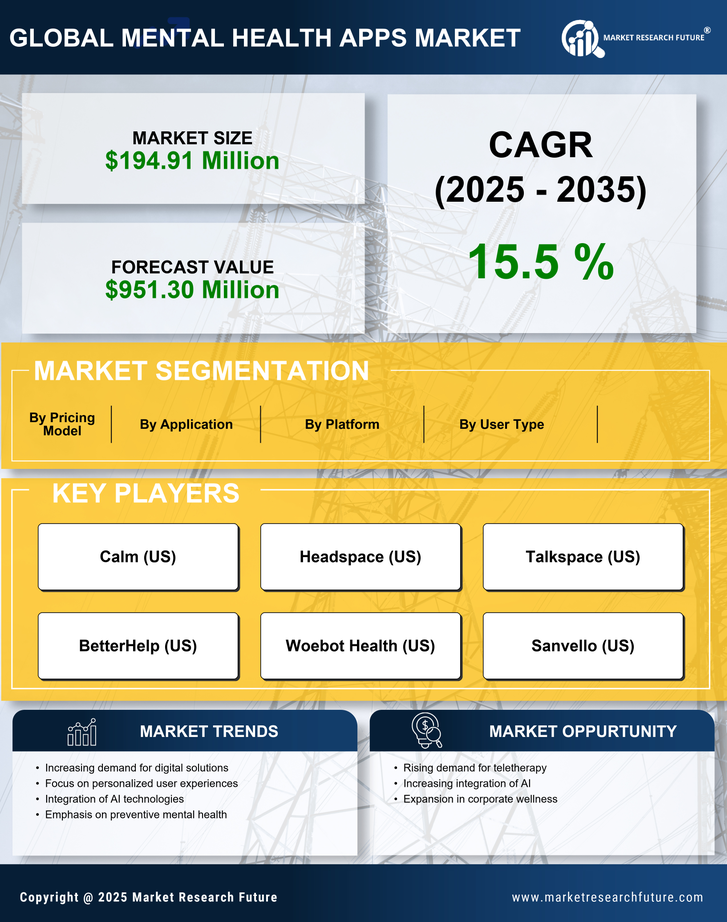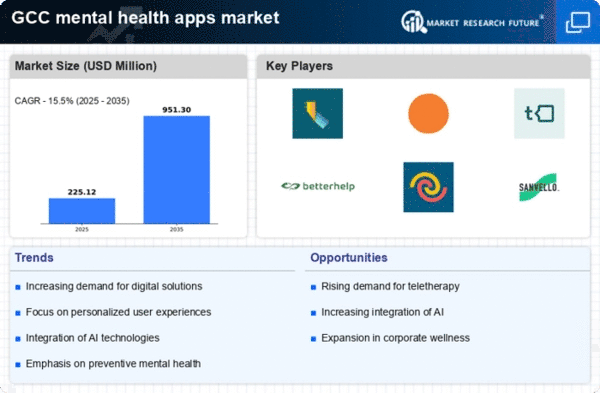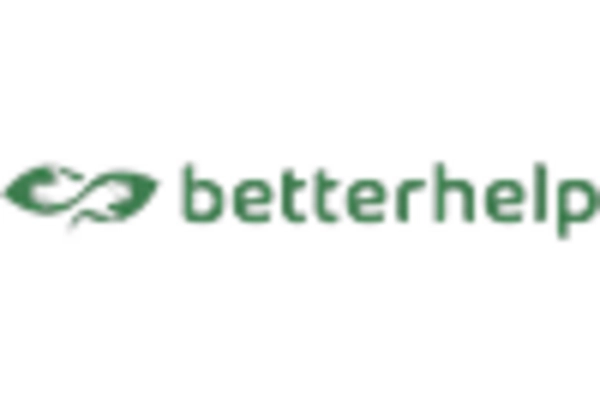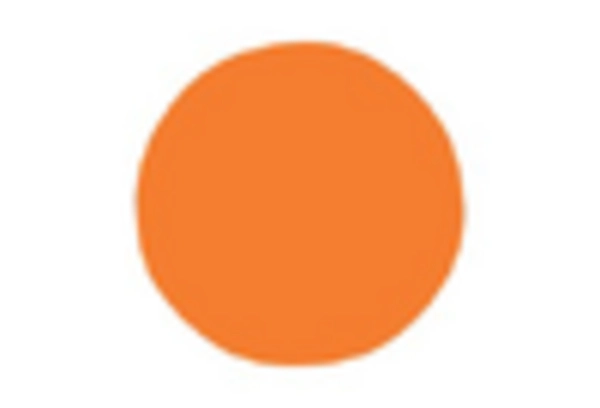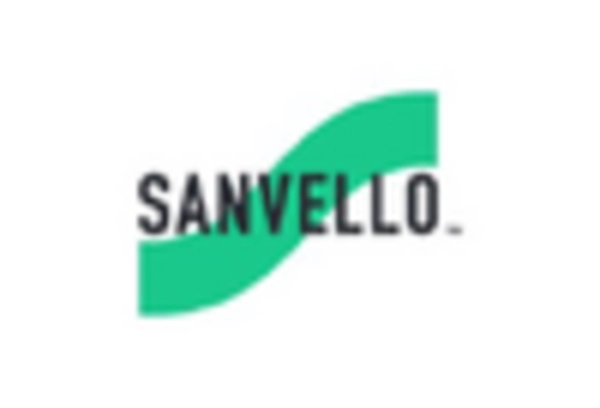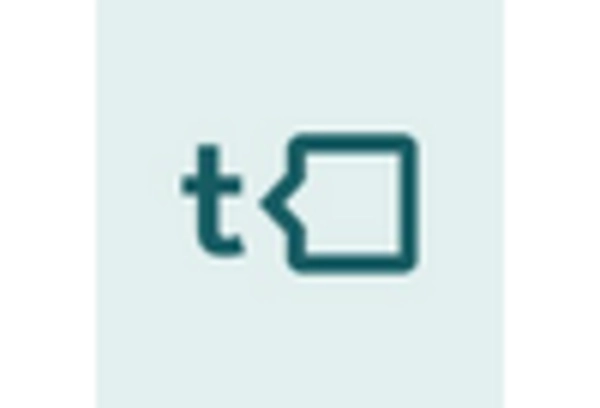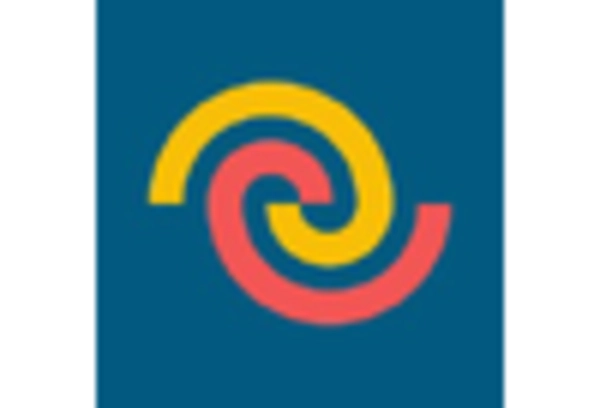Government Initiatives and Support
Government initiatives aimed at improving mental health services are significantly influencing the mental health-apps market. In the GCC, various governments are investing in mental health awareness programs and digital health solutions. For instance, funding for mental health initiatives has increased by over 30% in recent years, reflecting a commitment to enhancing mental health care. These initiatives often include partnerships with tech companies to develop and promote mental health applications. By providing resources and support, governments are creating an environment conducive to the growth of the mental health-apps market. This support not only encourages innovation but also helps in building trust among users, making them more likely to engage with mental health applications.
Focus on Preventive Mental Health Care
The growing emphasis on preventive mental health care is shaping the mental health-apps market. In the GCC, there is a shift towards proactive approaches to mental health, with individuals increasingly seeking tools to manage stress and anxiety before they escalate into more serious issues. This trend is reflected in the rising popularity of applications that offer mindfulness exercises, stress management techniques, and self-assessment tools. The mental health-apps market is responding to this demand by developing features that promote mental wellness and resilience. As users become more aware of the importance of preventive care, the market is likely to see a surge in the adoption of applications designed to support mental health maintenance.
Rising Awareness of Mental Health Issues
The increasing awareness of mental health issues in the GCC region is a pivotal driver for the mental health-apps market. As societal stigma diminishes, more individuals are seeking help for mental health concerns. Reports indicate that approximately 20% of the population in GCC countries experience mental health disorders, which propels the demand for accessible solutions. This heightened awareness encourages the development and adoption of mental health applications, as users look for convenient and private ways to manage their mental well-being. Furthermore, educational campaigns by governments and NGOs are fostering a culture of openness regarding mental health, which is likely to further stimulate market growth. The mental health-apps market is thus positioned to benefit from this cultural shift, as more users turn to technology for support.
Technological Advancements in Mobile Applications
Technological advancements play a crucial role in shaping the mental health-apps market. The proliferation of smartphones and the enhancement of mobile application capabilities have made mental health resources more accessible than ever. In the GCC, mobile penetration rates exceed 90%, providing a vast user base for mental health applications. Innovations such as artificial intelligence and machine learning are enabling personalized user experiences, which can lead to improved engagement and outcomes. As developers integrate features like real-time chat support and mood tracking, the appeal of these applications increases. The mental health-apps market is thus likely to see significant growth as technology continues to evolve, offering new functionalities that cater to the diverse needs of users.
Increased Demand for Remote Mental Health Services
The demand for remote mental health services is a significant driver for the mental health-apps market. As individuals seek convenient and flexible options for mental health support, applications that offer remote therapy and counseling are gaining traction. In the GCC, surveys indicate that over 60% of individuals prefer online consultations due to their convenience and privacy. This shift towards remote services is prompting mental health professionals to adopt digital platforms, thereby expanding the user base for mental health applications. The mental health-apps market is likely to thrive as more users recognize the benefits of remote access to mental health resources, leading to increased downloads and engagement with these applications.
